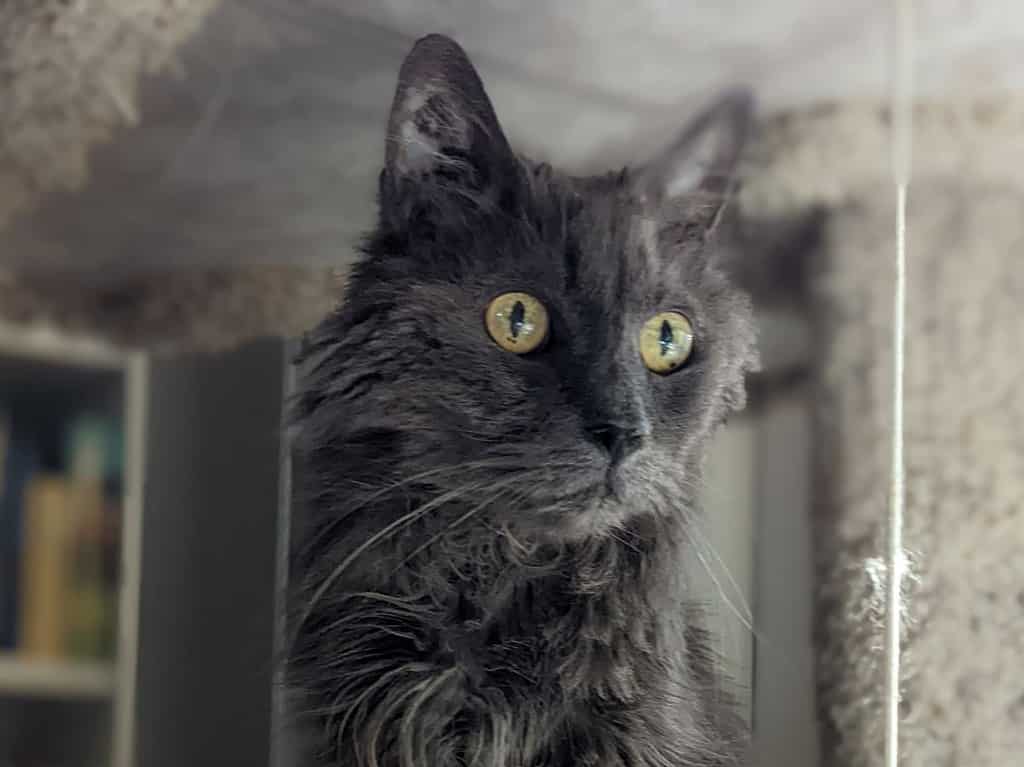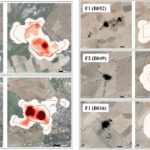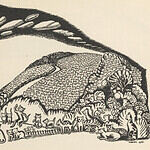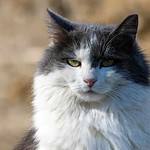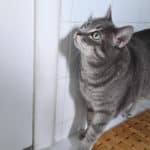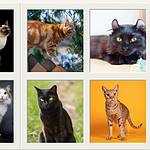Warming up cat food for older cats enhances the aroma and taste, making it more appealing for those senior cats with a reduced sense of smell or taste.
Warming food also eases digestion, as warmer food is closer to their body temperature and requires less energy to break down. This practice encourages appetite, especially in cats with health issues or dental problems.
Additionally, warming wet food softens the texture and increases hydration, supporting overall health.
Why you should warm up your senior cat’s food
Enhanced Aroma and Taste
The first reason to warm up cat food for older cats is to enhance the aroma and taste of their meals. Cats rely heavily on their sense of smell to determine whether food is palatable or not.
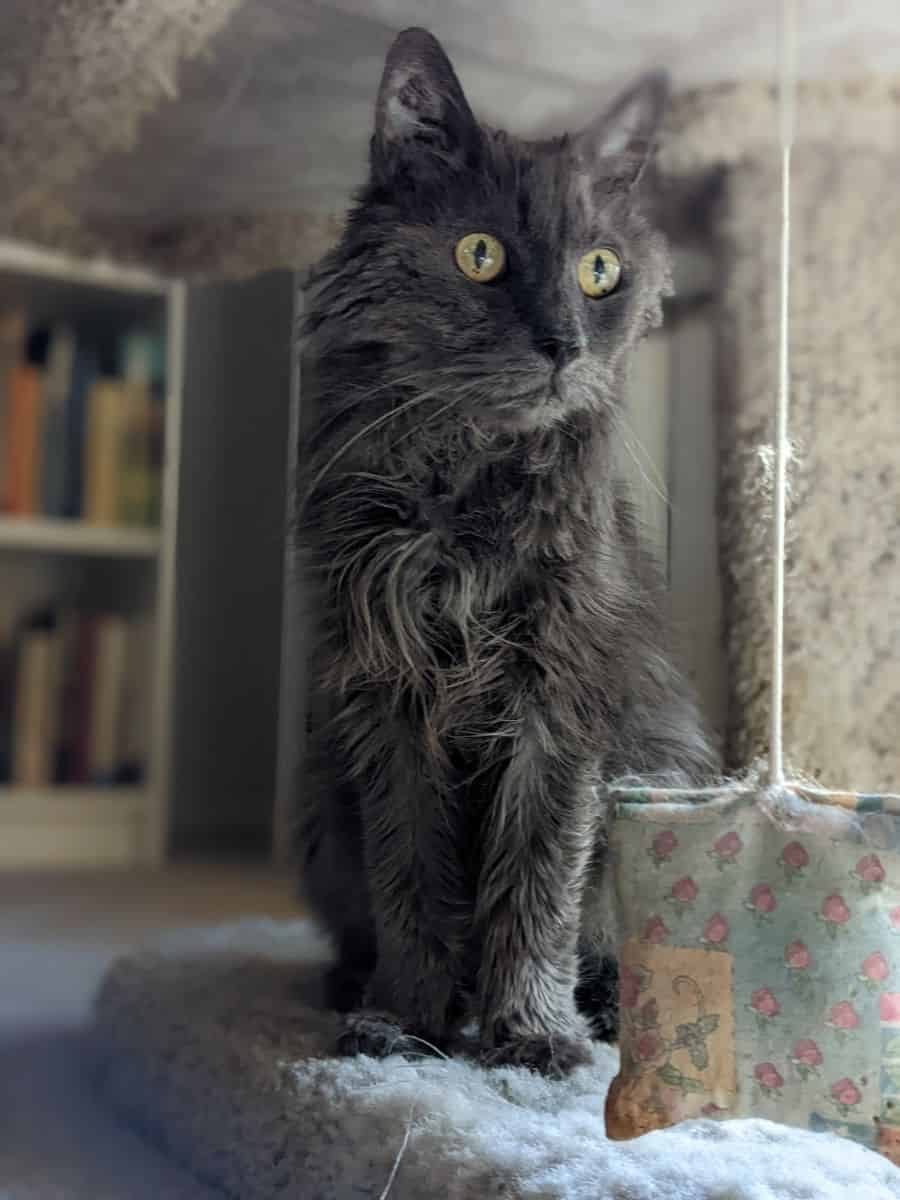
As cats age, their sense of smell and taste can decline due to age-related changes. By warming up the food, you help release its natural aromas, making it more appealing to older cats who may have a reduced sense of smell or taste.
Warming their food can help encourage senior cats to eat more, ensuring they receive the necessary nutrients for their overall health.
Easier Digestion
As cats grow older, their digestive systems can become less efficient, making it harder for them to break down and absorb nutrients from their food. Serving warm food can help older cats digest their meals more easily, as it is closer to their body temperature and requires less energy to break down.
This can be particularly beneficial for cats with age-related gastrointestinal issues or those experiencing a decline in their metabolic rate.
Warming up the food can help break down fats, making it easier for the cat’s digestive system to process them.
Encourages Appetite
Aging cats may experience a decreased appetite due to various factors, such as health issues, dental problems, or a natural decline in their senses. A loss of appetite can lead to weight loss, malnutrition, and other health problems.
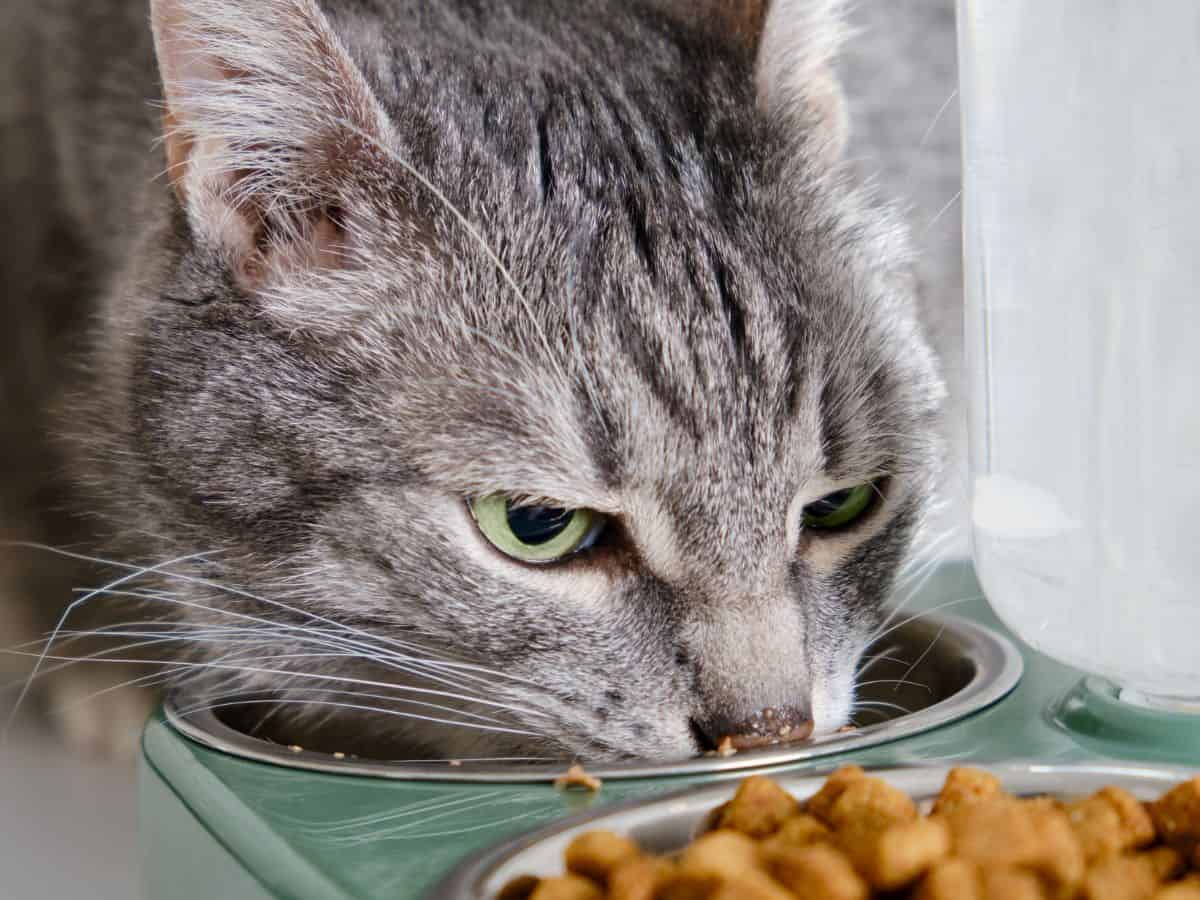
Warming up cat food can help stimulate their appetite by enhancing the food’s aroma and taste, encouraging them to eat more. This can be especially helpful for cats recovering from illness or surgery, as well as those with chronic medical conditions that may affect their appetite.
Softer Texture
Dental problems are common among older cats, and they may struggle to chew hard or dry food. Warming up canned or wet food can slightly soften the texture, making it easier for older cats with dental issues or missing teeth to consume their meals. This can help reduce discomfort while eating and minimize the risk of choking or other complications related to poor dental health. Additionally, a softer texture can be more palatable for cats with oral sensitivities, encouraging them to eat more and maintain a healthy weight.
Increased Hydration
Dehydration is a common issue among older cats, as their kidney function may decline, and they may not drink enough water to compensate for this change. Wet food can be a great source of hydration for cats, and warming it up can help release some moisture, making it even more hydrating. This increased hydration can help support proper kidney function, prevent urinary tract issues, and maintain overall health.
Make sure you warm the food safely for your senior cat
While there are numerous benefits to warming up cat food for older cats, it is essential to take proper safety precautions to avoid causing harm to your pet. Here are some tips for safely warming up cat food:
- Use a gentle heat source: Microwaving cat food can create hot spots, leading to burns if not mixed thoroughly. Instead, consider placing the cat food in a heatproof container and submerging it in a bowl of warm water for a few minutes. This will ensure even heating without the risk of hot spots.
- Test the temperature: Before serving the warmed food to your cat, test the temperature with your finger or a thermometer to ensure it’s not too hot. The ideal temperature should be close to your cat’s body temperature, around 100-102°F (38-39°C). This will help prevent burns and ensure the food is comfortable for your cat to eat.
- Don’t overheat: Overheating cat food can cause the loss of vital nutrients, so be cautious not to heat the food for too long or at too high a temperature. Warming the food to a comfortable eating temperature is the primary goal.
- Mix well: If you do choose to microwave the cat food, ensure you stir it well after heating to distribute the heat evenly and eliminate any hot spots.
- Monitor freshness: Warming up cat food can accelerate the spoilage process, so be sure to discard any uneaten warmed food after a reasonable time (typically within 30 minutes to an hour). This will help prevent bacterial growth and ensure your cat is consuming fresh, healthy food.
If concerned, consult a vet
If your senior cat is still losing weight even after you introduce warmed food, there may be an underlying health issue. It’s always best to have your senior cat examined by a veterinarian to rule out any medical issues preventing a healthy weight.
Quick overview: benefits of warming food for senior cats
- Enhanced aroma and taste: Warming up cat food can help release its natural aromas, making it more appealing to older cats who may have a reduced sense of smell or taste due to age-related changes.
- Easier digestion: As cats age, their digestive systems may become less efficient. Serving warm food can help older cats digest their meals more easily, as it’s closer to their body temperature and requires less energy to break down.
- Encourages appetite: Older cats may experience a decreased appetite due to health issues, dental problems, or simply a decline in their senses. Warming up the food can help stimulate their appetite, encouraging them to eat more.
- Softer texture: Warming up canned or wet food can slightly soften the texture, which can be helpful for older cats with dental issues or missing teeth.
- Increased hydration: Older cats are prone to dehydration, and serving warmed wet food can help increase their water intake, as the warming process may release some moisture.
Remember to warm the food gently and test the temperature before serving it to your senior cat.
Warming encourages eating in senior cats
Warming up cat food for older cats can provide numerous benefits, such as enhancing aroma and taste, easing digestion, encouraging appetite, providing a softer texture, and increasing hydration.
By understanding the importance of these benefits and following the proper safety precautions, you can ensure your senior cat maintains a healthy, balanced diet that caters to their specific needs.
References
Eyre, R., Trehiou, M., Marshall, E., Carvell-Miller, L., Goyon, A., & McGrane, S. (2022). Aging cats prefer warm food. Journal of Veterinary Behavior, 47, 86-92. https://doi.org/10.1016/j.jveb.2021.09.006
Hutchinson, D., & Freeman, L. M. (2011). Optimal nutrition for older cats. Compendium.
Little, S. (2017). Weight loss in senior cats. Delaware Valley Academy of Veterinary Medicine.
Ray, M., Carney, H. C., Boynton, B., Quimby, J., Robertson, S., St Denis, K., … & Wright, B. (2021). 2021 AAFP feline senior care guidelines. Journal of Feline Medicine and Surgery, 23(7), 613-638.

